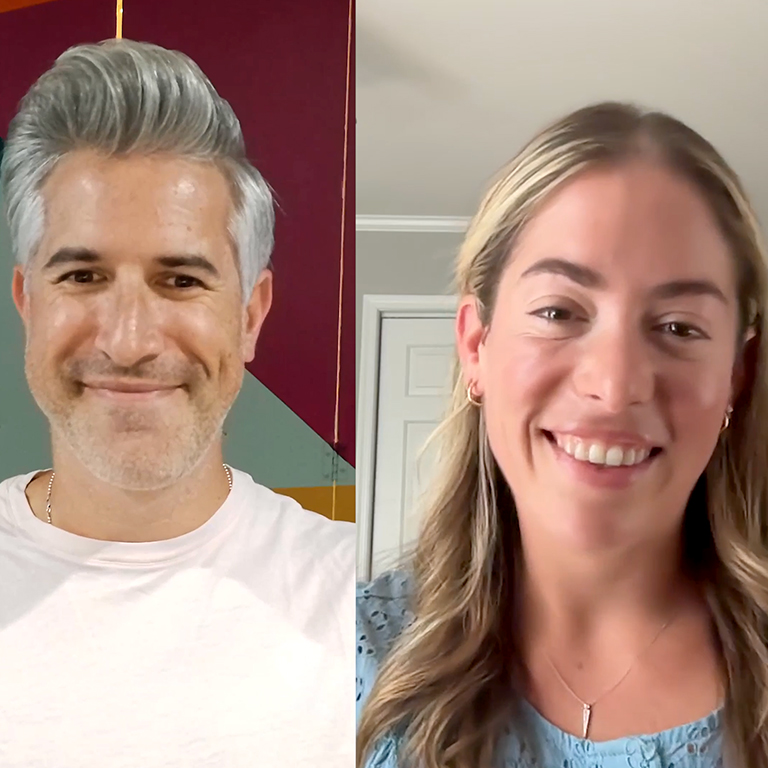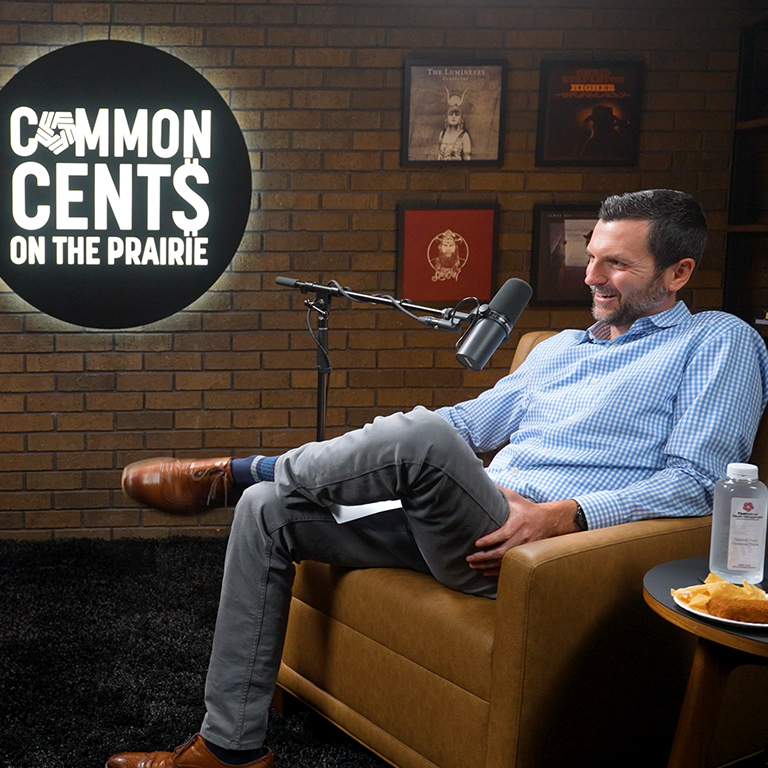
So, you’re just getting into the finance game. You do your own trading on Robinhood. You’re always watching the markets, looking for the next big thing. It might seem like you’ve found a way to make your own money, with no need for paying an advisor. But when it comes to maximizing your returns, could you actually be your own worst enemy?
That’s the question we’re answering on the latest episode of Common Cents on the Prairie™. We sat down with Dr. Daniel Crosby, Chief Behavioral Officer at Orion Advisor Solutions. With a Ph.D. in clinical psychology (and thanks to the influence of his father, who’s a financial advisor), Dr. Crosby is an expert on all things behavioral finance. We had a great conversation about how human nature can actually be detrimental when it comes to making decisions about money.
You can read a recap of our conversation below, listen to the entire episode, or find Common Cents on the Prairie™ wherever you stream your podcasts.
How behavior impacts investing
Put simply, behavioral finance is the study of how we make decisions with our money. Why is this such a big deal? Well, when it comes to investing, you can have all the best data and research about which approach to use, but it doesn’t account for human nature and emotion, which have even more of an impact.
“Behavioral finance just tries to see how real people will make real decisions and accounts for the fact that sometimes we’re greedy or fearful or stressed out or hungry or tired, or a million other things that lead us to make imperfect decisions with our money,” Dr. Crosby said.
He went on to say that in investing, success doesn’t come from picking the right stocks at the right time. It comes from being able to withstand making decisions based on emotions and remaining committed to one of the most tried and true investment fundamentals: time in the market is better than timing the market.
“We spend a lot of time arguing about one approach versus another and comparing them head to head,” Dr. Crosby said. “In reality, that’s not the most important consideration. The most important consideration is: can you stay invested long enough to realize the gains and appreciate the compounding and the power of whatever style or whatever approach you’ve chosen. That’s much harder to do than even to pick the right style.”
“History doesn’t repeat itself, but it does rhyme”
When new innovation hits the market, it can be even harder to abide by those rules. We’re seeing it right now with cryptocurrencies. A few people have made it big, and now lots of people think they can too. Almost every day, hundreds of new meme coins hit the market from people trying to get rich, but they have no underlying value.
“We are living through a golden age of financial nonsense right now,” he said. “There’s just a lot of really crazy and stupid things being passed off right now. Mark Twain said history doesn’t repeat itself, but it does rhyme.”
The history he’s referring to is the dot com bubble at the turn of the century. At that time, investors were abandoning the financial metrics traditionally used to determine that value of a company, and making investments based on speculations of which tech companies were going to be successful.
“Great innovations don’t always make great investments,” he said. “Most investors…they conflate how revolutionary something is with how good an investment it will be, and that’s not always the case.”
Overcoming it all
If we’re our own worst enemy when it comes to investing, what can we do to make sure we stay the course for a solid financial future? Well, Dr. Crosby recommends working with a financial advisor.
“People who work with an advisor do about two to three percent a year better than those who don’t,” he said.
The reason why those who work with financial advisors often outperform those who don’t is simple: an advisor keeps us out of our own way. With an advisor, you have a third party to discuss decisions with and they’ll often be able to help you recognize when you’re making a decision based on emotion.
Think back to March of 2020. Some investors were getting scared and jumping ship, while others did nothing. For those who didn’t panic and stayed in, it paid off.
“A very significant number of folks sold their entire investment portfolio in March and April of 2020,” he explained. “Those folks were trying to time the market. They said, ‘Look, things have gotten bad, we’re scared, we want out.’ Of course we know what happened: we just barely came off the best 12-month period in history. It wasn’t year to year, but there was a rolling 12-month period recently where we had 75 percent returns. The folks that got scared out at that least opportune time did not stick around to reap the benefits of the snapback and then some.”
If you’re ready to start working with someone who can provide you with this sort of solid financial advice, our team would be happy to help. Send us a note.
Any comments, insights, or strategies discussed in this article are intended to be general in nature and, therefore, may not be suitable for you and your situation, whatever that may be. Before acting on anything written here, please consult with your attorney, CPA, and/or your financial advisor.




